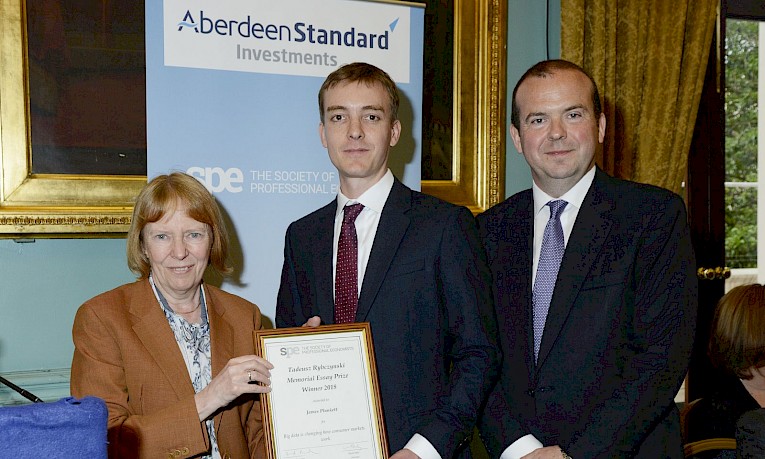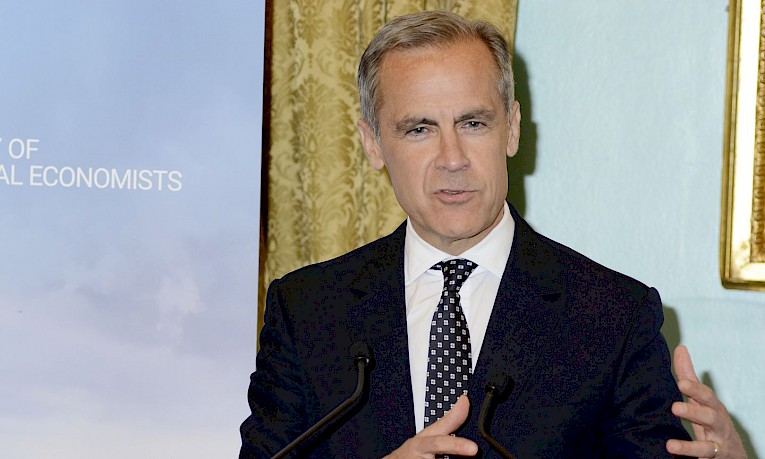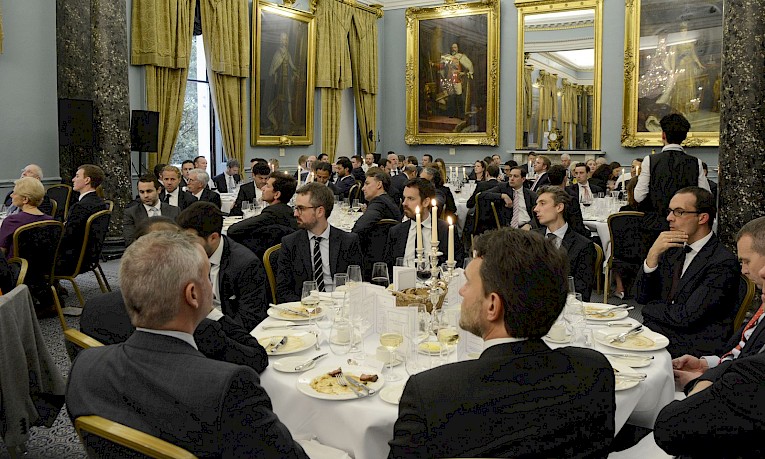06 June 2018
Annual Dinner 2018
Speaker: Mr Mark Carney, Governor, Bank of England
Venue: Institute of Directors, 116 Pall Mall, London, SW1Y 5ED
220 members and guests gathered on 24th May for the Society’s Annual Dinner, which was held in the Nash Room at the Institute of Directors. In the Society’s 65th year, it was a great honour to welcome Bank of England Governor Mark Carney as our guest speaker.
The evening’s formal proceedings started with the SPE Chairman’s speech. On behalf of the Society, Kevin Daly thanked Keith Skeoch and Andrew Milligan of Aberdeen Standard Investments for their ongoing and generous sponsorship of the dinner. Without their support, it would not be the event that it is. He went on to say a some words about the state of the economy and to provide update on the robust growth of the Society in the last 12 months. Kevin finished by thanking all those who generously give up their time voluntarily to support the Society, be it through the offer of facilities for meetings, book reviews, time spent on the council, as vice presidents or running our social media.
Dame Kate Barker, the SPE’s Vice President then announced James Plunkett as winner of the Rybczynski Prize, presenting James with the certificate and the £3,000 prize for his essay “Big data is changing how consumer markets work” - a copy of which can be found in the SBE reading room.

Kate then introduced our guest speaker, Governor Mark Carney, who’s speech focused on how Brexit might impact the path of monetary policy.
Dr Carney began by justifying the need for forward guidance in circumstances of high uncertainty (such as that created by Brexit) to help primarily households and firms better understand the Bank’s reaction function. In moving back towards more “conventional” policy-setting the Bank is once again focusing on inflation at the two-year horizon – which is seen returning to the 2% target as past currency-induced rises are eventually be replaced by stronger domestic price pressures.
The Governor highlighted risks to growth in both directions – on the upside if Brexit sentiment turned more positive, and on the downside if the current slowdown were to prove less temporary than envisaged or if the Brexit process were to be less smooth/end up with a less open relationship between the UK and EU.
To that end, the Governor discussed two possible paths for monetary policy dependent on Brexit. Under a smooth transition the evolution of interest rates will depend primarily on demand. A “deep and special partnership” between the UK and EU could yet generate a boom in investment and unlock consumer spending in this state of the world.

However, if the Brexit transition proved disorderly then there could once again emerge a policy trade-off between returning inflation to target and supporting economic growth. In that event, “exactly the same framework” to that employed following the referendum would apply – Dr Carney’s remarks being widely interpreted to imply a loosening of policy should that come to pass.
The evening was a resounding success and we look forward to next year’s event.


